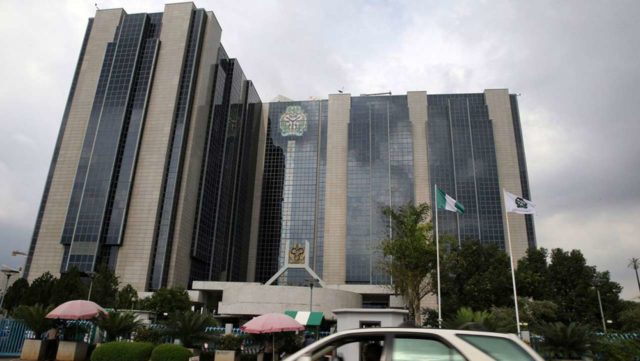By Geoff Iyatse (Lagos) and Collins Olayinka (Abuja)
Fear of a possible run on banks when the ongoing ‘currency seizure’ eases is brewing across the industry, findings have suggested. This is as the nation awaits the pronouncement of the Supreme Court today on the naira redesign policy.
However, the Central Bank of Nigeria (CBN), yesterday, broke its silence since the Supreme Court last week restrained the Federal Government from implementing the February 10 deadline for the currency swap.
The silence threw Nigerians into confusion on the state of the old notes, which are widely rejected, but accepted in some places. The CBN Governor, Godwin Emefiele, yesterday, said the February 10 deadline stipulated for the phasing out of old N200, N500 and N1,000 notes stands and there was no need to shift the deadline. He made this known during a visit to the Ministry of Foreign Affairs, to discuss the monetary and currency redesign policy of the bank.
He said: “The situation is substantially calming down since the commencement of over-the-counter payments to complement ATM disbursements and the use of super-agents. There is, therefore, no need to consider any shift from the deadline of February 10.”
Emefiele insisted that the bank’s position remains unchanged despite a Supreme Court order restraining the apex bank from phasing out the new notes as planned, pending the hearing of a lawsuit brought by three Northern states challenging the currency redesign.
The CBN Governor noted that queues for new notes are not a sign of unavailability, but some unscrupulous Nigerians taking advantage of the situation.
“While some of these withdrawal requests are genuine, some are simply reprehensible activities of miscreants who do not have intentions of making a withdrawal but seeking quick earnings just to queue up and sell their space for money.”
The CBN chief also confirmed that indeed some politicians are stockpiling the notes ostensibly for vote buying. His words: “CBN has also noticed that some of our leaders are buying the notes and storing them for whatever purposes. We have also noticed that some Nigerians are catalysing the time transition to charge exorbitant fees, these selfish actions for personal monetary gains are causes of hardship for Nigerians and come at the expense of lives and livelihood.”
He disclosed that the N2.7 trillion outside the banking system and in vaults of individuals posed a threat to the Nigerian economy. He further argued that the amount that ought to be in circulation should not be more than N700 billion, as a result, the N2.7 trillion was a huge threat to managing the country’s monetary policies.
He said: “The tension and elevated agitation are by our leaders who should be calming frayed nerves of citizens. We believe that the large proportion of these agitations are staged, they are sponsored propaganda or an exaggeration of the reality.”
Emefiele lambasted PoS agents for increasing the agony of Nigerians by their greed. “PoS agents who are supposed to help are getting involved in these activities. We have made it clear that whatever is their fee, which is not meant to be more than N200 for any amount you exchange, the CBN will pay as part of our efforts to lessen the burden of this problem.”
The CBN governor further said that PoS operators could come to the apex bank to be compensated for any extra cost incurred in getting the new notes, rather than charging higher fee on customers.
Speaking on gains recorded so far from the naira redesign and its corresponding policy add-ons, Emefiele noted: “Today, the limited circulation of the new naira notes has forced the hand of speculators and we are beginning to witness some stability. The initial pressure is projected to further moderate as the implementation of this policy takes off and a wider understanding of the system is achieved.
“This is actually good and data from our market sources indicates that prices of grains and other food items at the Suleja Lambata market have been on the decline trend since the beginning of this policy. The price of soya beans has dropped from N30,000 to N22,000, beans from N18,000 to N16,000.”
THIS position is contrary to that held by the Chief Executive Officer of Financial Derivatives Company, Bismarck Rewane, who has said Nigeria may suffer a Gross Domestic Product (GDP) loss of $18 million monthly owing to the negative effects of the naira redesign policy.
Rewane, who spoke during a recent presentation at the Lagos Business School, said: “Total man-hours loss in a month will be 120 hours and total GDP loss in a month will be $18 million.”
Rewane also attributed the decline in the GDP growth to reduction in velocity of money in circulation. “Trade is settled mainly in cash and PoS, although 70 per cent of trading transactions are settled by cash.
“Therefore, velocity of circulation in the trading sector (16 times) is approximately four times more than the formal sector. A decline in the velocity of circulation could reduce output in the trading sector. Hence its contribution to the GDP will fall.”
The Guardian learnt that some financial institutions are already preempting a worst-case scenario and simulating different strategies to minimise the impact on their stability.
A source privy to ongoing brainstorming sessions disclosed that industry-wide campaigns are also being considered since the challenge is not organisation-specific.
Behind the scenes, top bankers and other stakeholders in the community are working on getting the buy-in of the Central Bank of Nigeria (CBN) to roll out a campaign to raise the confidence level.
A source, however, said: “Bank run is more likely if only two or three banks are the ones facing the challenge. If customers withdraw their cash, what options do they have – keep the money at home?
“Is it safer to keep your money at home? The issue is clear – customers have access to their money but they cannot withdraw cash because of lack of clarity on the implementation of the naira redesign. Perhaps, that will be sorted out soon and everybody will be able to withdraw a reasonable amount of cash soon.”
But some analysts wonder what effectiveness such messaging initiated by operators could make when the confidence erosion is fueled by President Muhammadu Buhari and the leadership of the Central Bank of Nigeria (CBN).
soon.”
But some analysts wonder what effectiveness such messaging initiated by operators could make when the confidence erosion is fueled by President Muhammadu Buhari and the leadership of the Central Bank of Nigeria (CBN).
Buhari had accused the banks of sabotaging the programme. On different occasions, officials of the CBN also raised the alarm that the commercial banks were hoarding the new banknotes, thereby halting the speed of circulation.
Not knowing when normalcy would be restored in the banking space is a major trigger of the growing phobia of banking. Today, funds are moved around banks in electronic forms while cash payout has dropped to near-zero.
After the recent attacks on their facilities and employees, some banks closed branches in locations considered more volatile. In Lagos, for instance, most bank branches on the mainland have remained shut, which has further shut the door against customers with unresolved complaints.
Quick response via digital platforms is also not forthcoming, a situation that is fueling social protest and rising disenchantment among customers. Customers now take solace in calling out their banks on social media even as abusive emails are said to have increased tremendously.
A customer manager said it is the most difficult time to be a banker, disclosing that she had not witnessed the level of hate speeches against bank officials in her 13 years working in different banks.
But a professor of applied economics, Godwin Owoh, argued that it is morally and legally wrong for banks to assume that electronic transfer suffices for cash deposited at banks. If electronic transfers are at par with cash, he asked why the banks do not accept transfers as initial deposits for account opening.
Owoh confirmed the possibility of a bank run as Nigerians are losing confidence in the banking sector. This, he said, should be a major concern to the regulator who he said has not done enough to stem the apprehension.
With the confidence in the system dipping to negative region, the economist warned of a high chance of widespread panic withdrawal when normalcy returns as customers have suffered untold hardship and lost interest in banking. He observed that the Supreme Court’s order to return to the status quo provided a leeway to salvage the situation.
to return to the status quo provided a leeway to salvage the situation.
“If there is a bank run, the financial system will be in trouble. Sadly, we are not doing anytime to prevent this. The Supreme Court directive should have been followed with an action in the form of re-circulating the old notes. But that has not happened; there has not been formal communication with Nigerians to continue to use the old notes or otherwise. This has created confusion with some businesses rejecting the old notes,” Owoh lamented.
According to him, there cannot be a sustainable electronic payment system without sufficient physical cash as “every money transfer is expected to be backed by physical cash deposited somewhere”. He added that issued banknotes are the only recongnised legal tender and not electronic money.
David Adonri, an investment bank, said the apex bank would need to pump an equivalent of what it mopped up to prevent a run on the banks when money comes into the system. He warned that bank failure is a possibility in a worst-case scenario.
“The accusations by the President and the regulator that banks are the ones hoarding the banknotes have severely damaged the reputation of the operators and eroded confidence, which triggered protests. When money starts coming into the banks, people will most likely rush to get whatever they can. Such a scenario could trigger a run on the system, which could lead to bank failure,” the economist noted.
Sadly, Adonri said there are not many options to prevent the crisis unless the CBN pumps more money into the financial system. As at October last year, the currency in circulation was N3.23 trillion. About N2.7 trillion was said to be outside the formal financial sector, leaving only N500 billion in the banks. As at two weeks ago, N2.1 trillion was said to have been mopped in addition to N500,000 held by the banks. Coupled with the limited volume of the new notes circulated so far, Adonri said there is “some money in the banks that is not backed by cash”.
“It, therefore, means that CBN will need to even print more than the amount mopped to prevent a run on the banks. It may need to print over N3 trillion. Otherwise, the problem could boomerang. There is no doubt, there will be a run when the cash is available in the banks,” Adonri argued.
But a former President/Chairman of the Council of the Chartered Institute of bankers of Nigeria (CIBN), Mazi Okechukwu Unegbu, said individuals could be held back by the risks of armed robbery and other unpleasant possibilities. He, however, admitted bank run is a possible outcome of the current crisis if the management approach does not improve in the coming days.
For him, the longer it takes to resolve the crisis, the higher the chance there will be a run on the system. He said it would take some time before normalcy resumes even if more money is circulated today, suggesting that banks may have to go back to the days of tally numbers when cash operation kicks off.
Unegbu said: “The Central Bank, CIBN and other stakeholders have a lot of work to restore confidence. There needs to be collaboration among different stakeholders. If people are confident their money is safe, they will not panic.”
The Guardian reported recently a surge in outflows of savings from traditional banks to fintech (some of which operate with microfinance licences). Checks yesterday suggested a continuous uptick in the adoption of fintech with new subscribers moving their savings to the operators who charge fewer transactions, pay the higher interest rate and have less transfer turnaround time.
MEANWHILE, the Ogun State government has applied to the Supreme Court, seeking to join Kaduna, Kogi and Zamfara states, in the suit against the Federal Government over the demonetisation policy, which introduced new versions of N200, N500 and N1,000.
The state, in a Motion of Notice filed by its counsel, Afe Babalola and Co, on February 13, sought to be joined as the 4th plaintiff/applicant, in a suit number SC/CV/162/2023.
The applicant in the Notice further stated that it sought to be a co-plaintiff for the just and effective determination in the suit instituted by the other three plaintiffs.
The plaintiff also notified the Supreme Court that it shall rely on all the processes already filed in this action in addition to the affidavit in support of the application.
Source: The Guardian









Your article gave me a lot of inspiration, I hope you can explain your point of view in more detail, because I have some doubts, thank you.
Thank you for your sharing. I am worried that I lack creative ideas. It is your article that makes me full of hope. Thank you. But, I have a question, can you help me?